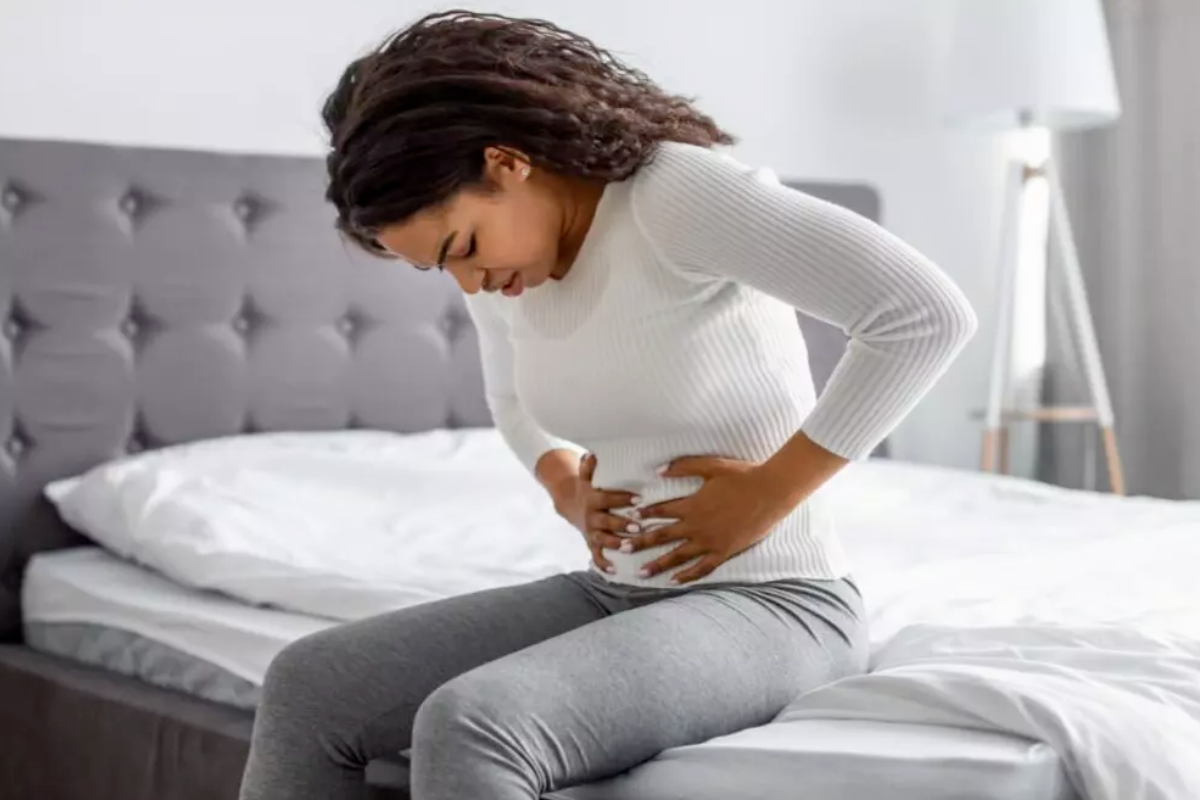Expert Interview: Sexual Wellness After 40

We had the pleasure of sitting down with sexual wellness pioneer Dr. Barb Depree to talk about sexual wellness after 40. Dr. Depree answered our community’s top questions on topics ranging from vaginal dryness to low libido to urinary incontinence.
Dr. Depree is the Director of Women’s Midlife Services at Holland Hospital in Holland, Michigan, and has practiced as a board-certified gynecologist and women’s health provider for 30 years. She is a certified menopause specialist and in 2013 was named Certified Menopause Practitioner of the Year by the North American Menopause Society for exceptional contributions to menopause care.
Dr. DePree also founded the groundbreaking website MiddlesexMd.com, a site focused on educating women about sexual wellbeing, particularly during the menopause transition, and offering curated products that support vaginal health and sexual wellness.
Midday: It takes a lot of courage to talk openly about matters that are still a source of shame and silence for many women. How did this topic of sexual wellness become your north star?
BD: It can be difficult for women to broach this topic. That was one reason I created an online resource so that women could access medically accurate information in their own place, on their own time. It’s a place where they can gather the information pertinent to them without asking a provider.
We also recognize that with time restraints in medical practices, many providers aren’t opening the door for women to ask about it, so we’ve put the patient’s burden to bring up the topic. Sadly, it often goes undiscussed. The combination of providers not having time or interest or not sure how to even guide women by addressing their needs, along with women having some sensitivity or reluctance about bringing it up, has left many gaps in addressing women’s needs.
Midday: What do you find are the main reasons women are reluctant to bring up intimate issues with their physicians?
BD: Interestingly, recently published data reports that 80% of women didn’t even recognize that vaginal dryness was a medical condition, connected to the menopausal transition or that there were any treatment options for it. If most women don’t have a lot of awareness or don’t think there’s any solution for it, it would make sense that they might not bring it up to their provider. They may believe that it’s part of aging, it’s just what happens, and that they need to live with it.
Our interaction today is one way to give women the language and information to go back to their providers with. We can empower them to have a more specific conversation and seek answers to their questions with their own trusted providers.
Midday: Conversations about sexual wellness have just started to creep into the mainstream, but you have been talking about it for a very long time. How far do you think we’ve come, and how far do we need to go?
BD: I’m happy to say that we’ve made some progress. I launched MiddlesexMD.com because when I started doing menopausal women’s health, on my eight-page intake form, asking women many detailed questions, there were eight questions directed towards sexual health.
It became immediately apparent that there was a lot of dissatisfaction around women’s sexual health. It became a focus for me. I also recognized I didn’t know where to send women to look at options for lubricants, vibrators, dilators, and pelvic floor exercise tools, so I created a website. At the time, there was no resources that I felt good about sending my patients to. Since then, many additional resources have become available to women online. I’m grateful to know that it has been elevated in both importance and conversation.
Midday: It’s incredible to me that social media platforms like Facebook restrict certain language and advertising around women’s sexual health but don’t apply the same standard to men’s sexual health. What’s your view?
BD: The restrictions around language about sexual health on social media platforms, where many women gather to have conversations and to get information, have been a bit of a barrier for open-ended, medically accurate discussions. However, I’m encouraged by the interest in this area for innovators and women themselves.
Midday: Some of the most common intimacy problems women encounter during the menopausal transition are vaginal dryness, pain during sex, low libido, and urinary incontinence. Can you tell us why these problems occur in women as they age and how to solve them?
BD: The way I introduce this topic to women is to explain that for 40 years, they have had circulating hormones. Circulating ovarian hormones more specifically, and even more specifically, estrogen. I explain that you have estradiol receptors in your brain, in your skin, in your bones, in your blood vessels, in your breasts, and throughout your body for 40 to 45 years. That hormone has been playing a critical role in your health and wellness. When you become menopausal, the areas where estrogen receptors are abundant, the vagina, the vulva, and the lower urinary tract, are now lacking estrogen. Over time that becomes more and more apparent.
Statistics show that over 80% of women will complain of vaginal dryness. This can present as day-to-day vulvar discomfort, a little irritation, a little discomfort after wiping, a little more chafing after a bike ride, and general awareness that the vulva is not as comfortable. When women use the word “dryness,” most of those women have pain with intercourse.
On a cellular level, significant changes are going on. There is less blood supply to the genitals, there’s thinning of the tissues, the vagina usually has what we call rugations, which are folds, and those disappear. My analogy for women is that a healthy vagina is like a pleated skirt. It’s got lots of room. It’s got flow. It’s got space. Your post-menopausal vagina looks like a pencil skirt. It’s got no room for movement, and therefore intercourse, which requires some capacity, and some mobility, becomes more and more restricted and uncomfortable.
It’s not just dryness. It’s the cytology, the epithelium, and all of those areas we see significant evidence of change. The labia minora almost nearly disappear for post-menopausal women, and there is a regression of the tissue. The genitals are just as impacted by menopause. Bladder function is affected by more urgency and frequency, sex is impacted, day-to-day comfort might diminish, and if we don’t give women the language or the knowledge about it, they don’t know to ask or to seek solutions for these issues.
Midday: What are some solutions for vaginal dryness?
BD: For most women, we can recommend over-the-counter products. Some vulvar soothing products can be applied to make the tissue feel a little healthier. Specifically, around intercourse, we recommend the initiation of using a lubricant. We know about moisturizing our face and skin, and we start doing that at an early age. The vagina really should also be moisturized before it becomes too atrophic or dry. We can’t necessarily restore vaginal health with a moisturizer, but we can retain its health.
My website reviews lubricants and moisturizers, along with how to select them and how to use them. These products have some bioadhesive ability to keep moisture in the vagina, keep it more supple and soft and mobile, and allow for more comfortable sex. Choosing a good lubricant is essential. Many of the over-the-counter lubricants are water-based, which is not ideal for post-menopausal women. Generally, we’re advising to use a silicone lubricant. There’s a lot more slipperiness, and they’re a lot longer lasting. Helping guide women in some of those simple solutions can make a huge difference in their quality of life and intimate relationship.
Midday: What additional advice can you give about finding a lubricant that works for both people in the relationship?
BD: I did a journal article on this a few years ago. I went to my local drugstore, which had 38 different vaginal products out on the shelf. Some have lightning bolts on them; others have fancy language on the label. Usually, the products that claim to improve arousal have ingredients added that will have a bad outcome if you apply them to a vagina that might be atrophic, sensitive, thinned, and fragile. Another store I went to had 14 over-the-counter products. There are so many options. My article asked how many do you have to buy and collect before you find the right one.
On my website, one of the first products we came up with was a lubricant sample kit containing trial sizes of multiple lubricants. People sent back their preference, and we mailed them a full-size of it. Since it is a journey of selection, it’s hard to tell you exactly which one you’re going to like.
In my office, I hand out samples. There’s one called Pink Silicone and another called Uber Lube, those are both great, high-quality silicone lubricants, but there are a lot of good ones out there. It just takes some time. We’ll often tell women to apply it at home to the genitals when they’re not expecting a sexual encounter. If there is some irritation or something is unpleasant, they will know about that in advance, and it won’t derail an intimate encounter.
Midday: What do you tell women who report that their sex drive is low and want to know if they will ever get their sex drive back?
BD: This is one of the most distressing areas of sexual health that women experience. When we talk about women and sexual health, we always want to address pain first. We never want women to engage in painful sex. When women come in and say, “My libido is low, and by the way, it’s painful,” we always need to address pain first.
We never want women encouraged to continue sexual activity in the presence of pain. Not everything painful is atrophic, hormonally, or menopause-related. There are other vulva or vaginal conditions that may contribute to pain. This is an excellent time to have a thorough pelvic exam by a skilled clinician who can make the proper diagnosis.
When low libido is persistent, if we’ve addressed pain, the biggest thing I can help women understand is that it’s expected, sadly. We know that with aging and menopause, hormonal changes play into it, but there are a lot of other factors. We think we are no longer reproductive individuals, so it’s probably not surprising that we lose some of the drive to reproduce when it’s no longer physiologically possible.
I use Dr. Rosemary Bison’s analogy a lot. She talks about libido – women becoming mostly neutral about sex and choosing to read a great chapter of a book instead of having sex. She would say, understand that that’s expected, but be intentional and mindful about choosing sex. Once you initiate a sexual encounter, desire will kick in. Start with foreplay and take plenty of time for that. Hopefully, there’s a physiological response with some arousal. Desire will absolutely kick into that event, but desire might not lead you into the event. It’s more about decision, intention, mindfulness, and planning.
We want women to understand that they can add a little novelty, add more sensory pleasure to the event, change the location, play the music, and use a little aromatherapy or some massage oil. Again, the more senses you can add to the experience, it increases the likelihood of enjoying that event.
I think it’s an area where habits have formed, especially in long-term relationships. Once things change sexually, it can be a hard conversation to change the habit or the pattern of your intimate encounter. However, it’s beneficial to do that and try to explore some other new and different ways of enjoying an intimate encounter.
I think it’s more about just understanding libido and trying to address it in that regard. Hormones may impact it, and we know the brain and neurotransmitters largely direct libido for women. There are a couple of FDA-approved products for women around libido, such as using testosterone therapy off-label. I also encourage women to acknowledge low libido and just think about it differently. Don’t wait for desire to prompt you to initiate or enter the intimate encounter but choose it because you recognize it’s important to the relationship.
Midday: Can you share with us the benefits of using a vibrator?
BD: Vibrators are a very important tool and were one of my motivations to do my website, MiddlesexMD.com. I will use this analogy: when you turn 42, and your near vision wasn’t what it used to be, you didn’t stop reading. You went and got readers. So, now that you’re 52 and the ability to arouse an orgasm isn’t great, maybe it takes longer, or it’s harder to achieve that, do you just stop? I guess you could, but why would you want to? That’s where a vibrator comes in. A vibrator can provide very directed stimulation for women, whether it’s the clitoris or the interior-anterior vaginal wall, to help women achieve arousal and orgasm.
We know that the improvement of blood supply, and again, the contraction of the pelvic floor, it’s all healthy, so in this idea of sexual health, there’s a blurred line between sex and all the degradation that goes along with it. My hope in doing a website and putting some clinical credence to it was taking vibrators from sex toys and looking at them as a health device and elevating that conversation. There are some fabulous designs.
One of my goals with the website was to find high-quality products to help simplify the selection process. Vibrators can make all the difference in the world for women who are single or not in a relationship. We want women to recognize the importance of maintaining sexual health. One of the primary ways of preventing vaginal dryness and the pain that might happen due to menopause is to have regular sex. Sex is one of the treatments, and if it’s solo sex, including a vibrator or great, partnered sex, great. Embrace wherever you happen to find yourself in that stage of life.
Midday: We see CBD pop up in everything, including products of an intimate nature. What is your take on the incorporation of CBD into intimacy products? Does it help libido?
BD: The data are varied, and I don’t think we have great clinical data that says it’s going to enhance the sexual experience, whether it’s added to a lubricant or used systemically, but I don’t see a downside to trying it, and if there’s perceived benefit, I certainly don’t discourage my patients from using it. Many of the claims aren’t necessarily validated. It’s a bit of a buyer beware.
Midday: We know that urinary incontinence is a source of embarrassment and discomfort and is drastically underreported. What can we do about it?
BD: There are different kinds of urinary incontinence. The two main types we talk about are stress incontinence and urge incontinence, but you can have both. Stress incontinence is the leaking that happens with a cough, a sneeze, a laugh, a lift. When you increase inter-abdominal pressure, the pelvic floor, the bladder’s neck, between the bladder and the urethra, doesn’t maintain the support with the pelvic floor enough, and you leak. To address this, we recommend pelvic floor exercises, including Kegels.
Beyond that, pelvic floor tools use new technology to improve the pelvic floor and strengthen the musculature. An orgasm causes contraction of the pelvic floor muscles. It’s not separate from sexual health. That’s where having sex more often and achieving an orgasm, and contracting the pelvic floor is good for bladder health, too. When it comes to urinary stress incontinence, pelvic floor physical therapy, exercises to strengthen those muscles, and surgery are all options.
The other incontinence is around urge and frequency. When the bladder is filling, and the brain is telling you, “Oh, I have to empty.” It becomes more challenging to postpone that urge. A lot of women find leaking at that time, and that does have a hormonal connection. Menopausal women experience more urgency and incontinence, and that’s why it is important to treat and reverse that vaginal atrophy.
Our new term for vaginal atrophy is now Genital Urinary Syndrome of Menopause or GSM. We want women and other providers to recognize it’s not only the genitals but it’s also the lower urinary tract, and it is a syndrome. It is a direct result of menopause; in other words, hormones. Smoking, chronic cough, obesity, multiple childbirths, and vaginal birth of large babies are some risk factors for urinary incontinence. Women are discovering that they don’t have to accept these issues as the norm. There are some new intravaginal technologies that help strengthen the pelvic floor and help improve tissues and the musculature.
Midday: What is the latest on menopausal hormone therapy for GSM?
BD: We’ve recognized the Women’s Health Initiative, published in 2002, which used data that probably shouldn’t have been applied to the general population, created fear in women of using this very effective treatment option. I think the pendulum is coming back, and as we’ve gotten wiser, we have more data about which hormones to use, when to start them, and how to dose.
The good news is we continue to see the benefits of hormone therapy around cardiovascular health, reducing Type II diabetes, certainly bone health, sexual health, and cognitive health. There is interesting data recently published about brain changes that happen with the menopausal transition and what role hormones might have.
Women are starting to recognize, and we’re starting to get better information about using hormone therapy safely. It’s not for everybody, and not everybody necessarily benefits from it. For those who do, it can be pretty life-changing. So, I think it deserves a very careful, directed conversation with women about their risk factors and their family history to explore if it might be helpful.
Personally, it’s been fabulous for me. My mother died of a hip fracture when she was 62, and my personal story is around skeletal health or bone health. We recognize it’s the gold standard around preserving bones, but everybody has a little different need, a different health history, and different family history. We like to understand where women are coming from, what they’re comfortable with, and what works for them. It’s not going to be one-size-fits-all.
The North American Menopause Society, whose website is menopause.org, lists certified providers across the U.S. in many, many communities. They will usually be the more skilled providers to help women have those more nuanced conversations. Many internists or family doctors may not have additional training or knowledge around menopausal care. I think women deserve to explore their concerns with a clinician who has more specialized training.
Sign up for more unique women’s health content
By submitting this form, you agree to the Lisa Health Privacy Policy and Terms of Use


